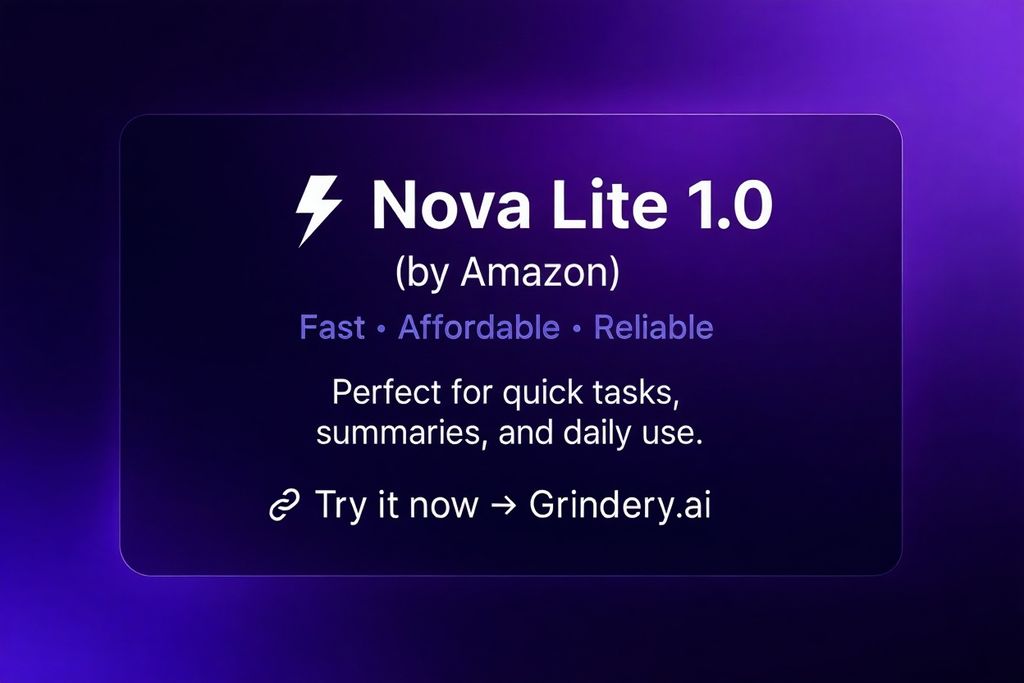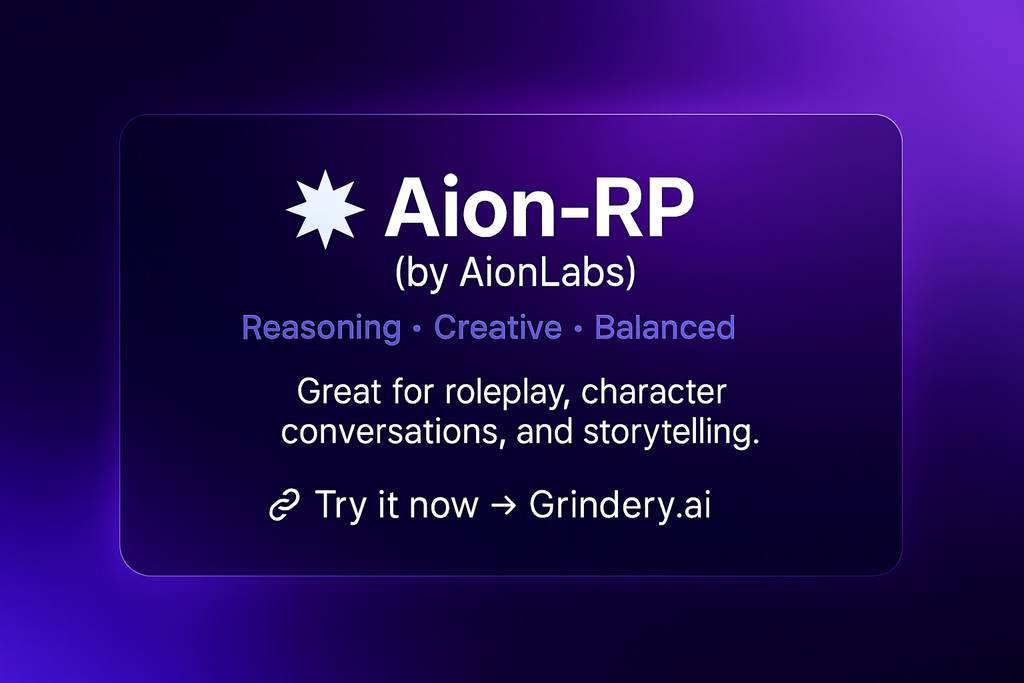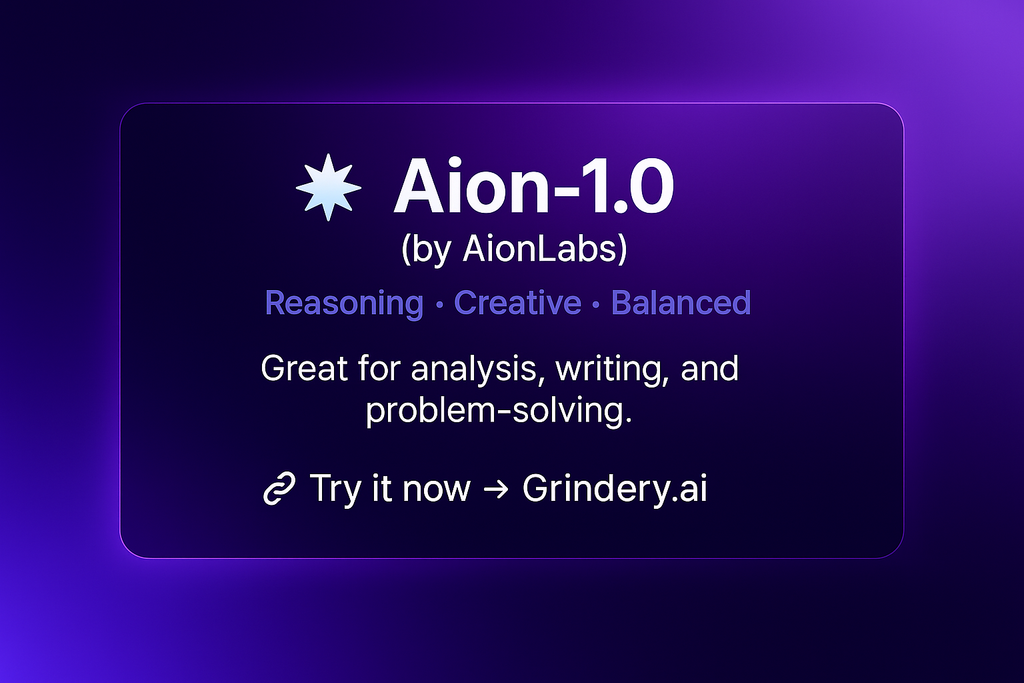Today we’re adding another specialized model to Grindery.ai:
Agentic Workflows (DeepSeek V3 – Agentic).
This model is tuned for multi-agent orchestration and automation — making it easier to design assistants that don’t just answer, but coordinate, plan, and execute workflows.
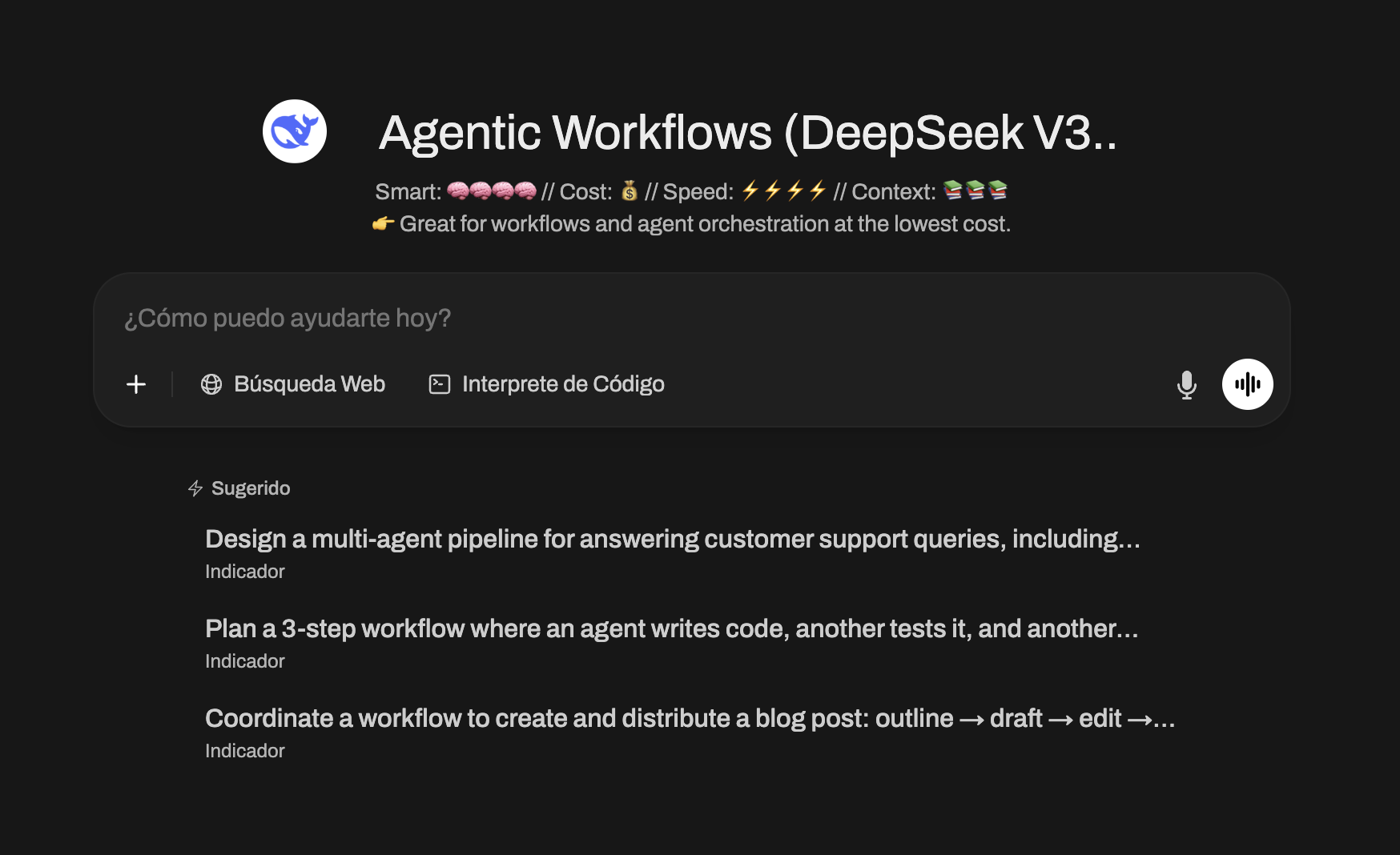
🧠 Why an Agentic Model?
Most AI models are optimized for conversation or reasoning. But when you want to build AI agents that can collaborate, delegate, and chain tasks together, you need something different:
- ⚙️ Workflow-aware — designed to handle structured processes.
- 👥 Multi-agent ready — great at delegating tasks across “sub-agents.”
- 💰 Low cost — run scalable agent frameworks affordably.
- 🧠 Solid reasoning — stronger than lightweight models, without the high cost of premium LLMs.
This makes it the perfect foundation for building and testing agentic systems.
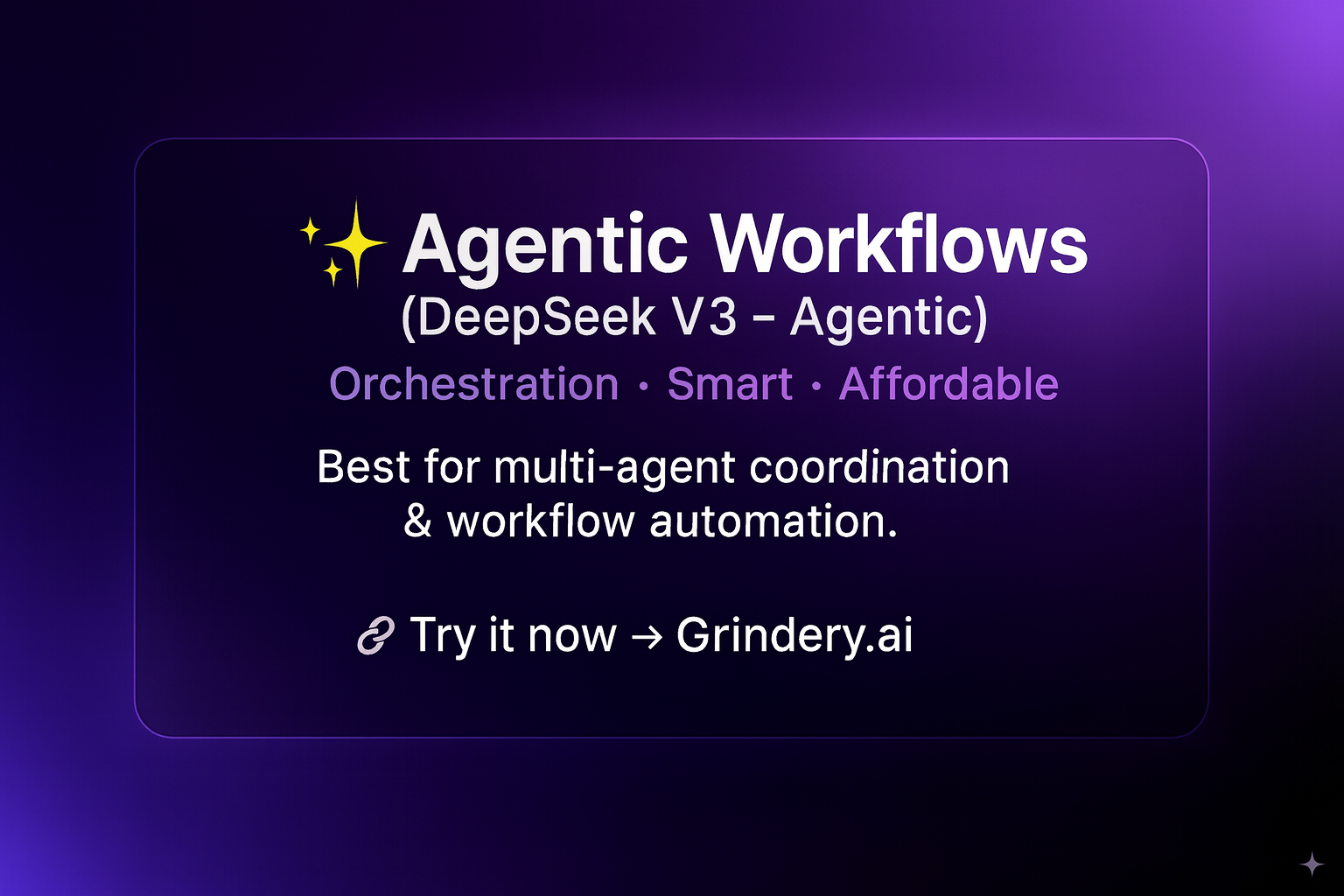
📊 Model Stats
- 🧠 Smartness: 🧠🧠🧠🧠
- 💰 Cost: 💰
- ⚡ Speed: ⚡⚡⚡⚡
- 📚 Context: 📚📚📚
🔧 How It Works
Agentic Workflows is built on DeepSeek V3, optimized for orchestrating structured interactions.
It can:
- Break down complex goals into smaller tasks.
- Decide which “sub-agent” is best for each step.
- Maintain consistent state and flow across tasks.
- Provide structured outputs that are easy to parse.
👉 Perfect if you’re experimenting with agent frameworks, autonomous workflows, or backend task orchestration.
🎯 Best Use Cases
- Building multi-agent assistants (e.g., planner + executor models).
- Automating workflows (research → summarization → publishing).
- Chained reasoning tasks where steps depend on each other.
- Testing orchestration frameworks like FlowXO, LangChain, or custom-built systems.
🚀 Example Prompts
Here are a few ways to try it out:
- “You are a task orchestrator. Break down the goal ‘launch a product on Twitter’ into 5 sub-tasks and assign them to specialized agents (marketing, design, scheduling).”
- “Given a research question, design a workflow with 3 sub-agents: one for gathering sources, one for summarizing, and one for fact-checking.”
- “Plan a 3-step workflow where an agent writes code, another tests it, and another documents it.”
- “Coordinate a workflow to create and distribute a blog post: outline → draft → edit → publish.”
- “Design a multi-agent pipeline for answering customer support queries, including triage, resolution, and escalation.”
🎯 When to Use It
👉 Use Agentic Workflows when you want structured, multi-step execution.
It’s not just about giving answers — it’s about designing the process to get there.
Perfect for builders, devs, and experimenters working on the next wave of autonomous AI systems.
💡 This is part of our ongoing rollout of specialized models on Grindery.ai.
Each one is tailored to a use case — so you can pick the right tool for the job.
👉 Try Agentic Workflows now at Grindery.ai and start building your own agent systems today.
